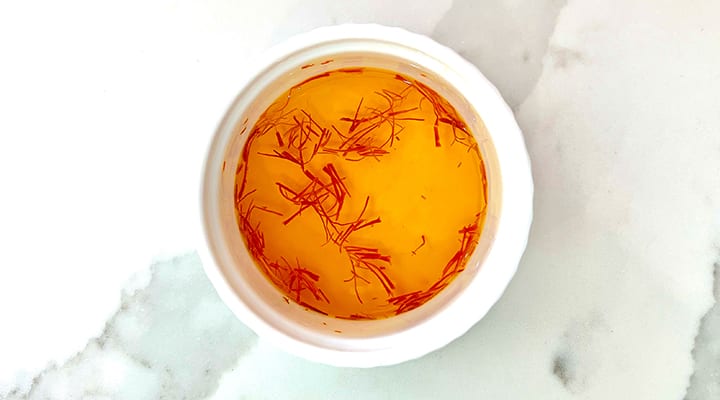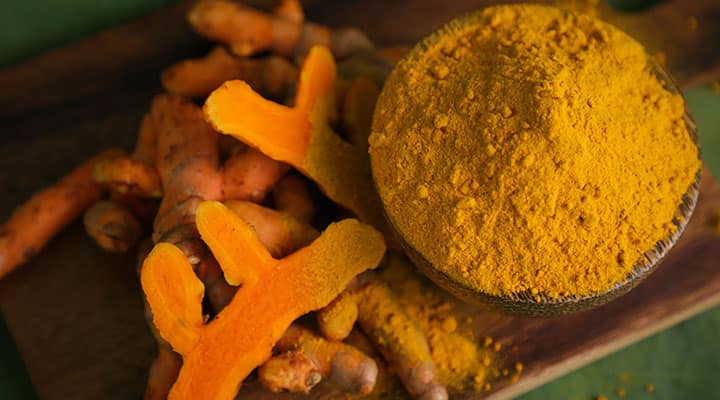
14 Herbs and Spices That Help with Inflammation
Published: August 2021
Are you ready to go beyond the salt shaker and sample flavors from around the world? Cooking with spices and herbs is a great way to add flavor to your food and expand your palate. Beyond that, many spices offer health benefits—specifically, anti-inflammatory properties. That's why many extracts contain the bioactive compounds of spices in doses that have been standardized to ensure an amount that's been clinically studied to show benefit.
Cooking with these same spices and herbs that are used as tinctures, teas, and oils can contribute to your overall intake of these healthful plants. In fact, there are probably some of these anti-inflammatory seasonings in your spice cabinet right now!
Here's how spices and herbs fight inflammation.
What exactly is inflammation?

There are two main types of inflammation. Acute (short term) and chronic inflammation. Chronic, low-level inflammation that continues to develop with age, referred to as "inflammaging," is harmful if left unmanaged over time and can lead to accelerated aging of the body. Some markers and mediators of inflammation used in research and diagnosis include:
- Tumor necrosis factor-alpha (TNF-α)
- Nuclear factor kappa-B (NF-κB)
- Interleukins
- Eicosanoids
- Cyclooxygenases (COX) and Lipoxygenases (LOX)
- High-sensitivity C-reactive protein (CRP)
TNF-α and interleukins are cytokines (signaling proteins involved in triggering an inflammatory response). For example: fat tissue, especially the type of abdominal visceral fat seen in obesity, can secrete pro-inflammatory cytokines leading to systemic inflammation in people with obesity.
Are herbs and spices anti-inflammatories?
The term "anti-inflammatories" actually refers to a class of medications. In contrast, anti-inflammatory spices—similar to fruits and vegetables—naturally contain active compounds that have been shown to reduce one or more markers of inflammation.
Herbs vs. spices for inflammation
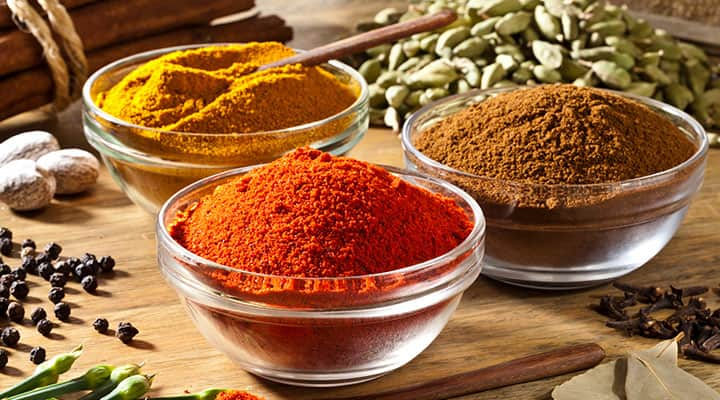
Both herbs and spices have anti-inflammatory properties, but there are some differences between the two. The terms "spices" and "herbs" are sometimes used interchangeably—but in fact, they are distinct botanically as well as in culinary use. A spice is a plant substance used for flavoring, coloring or preserving food. For example, turmeric is a spice that is commonly used in the condiment mustard and can play all of the roles just mentioned. These are parts of the plant that are used as spices:
- Seed
- Fruit
- Root
- Bark
Herbs are also plants, and like spices, they are also used for flavoring or sometimes as a garnish. Certain herbs, such as rosemary, are also used for preserving food because of their antioxidant properties. Parts of the plant that are used as herbs include:
- Leaves
- Flowers
- Stems
14 anti-inflammatory herbs and spices
1. Rosemary
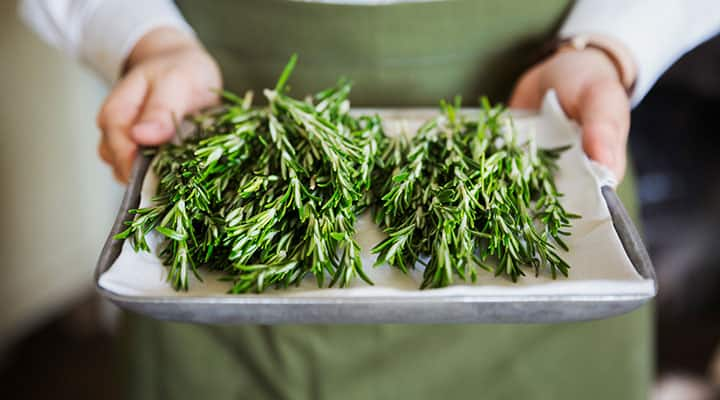
The rosmarinic acid found in this fragrant herb has been shown to reduce inflammation, among other benefits. Rosemary is of particular interest in helping with a variety of neurological conditions. Pair it with turkey or carrots!
2. Basil
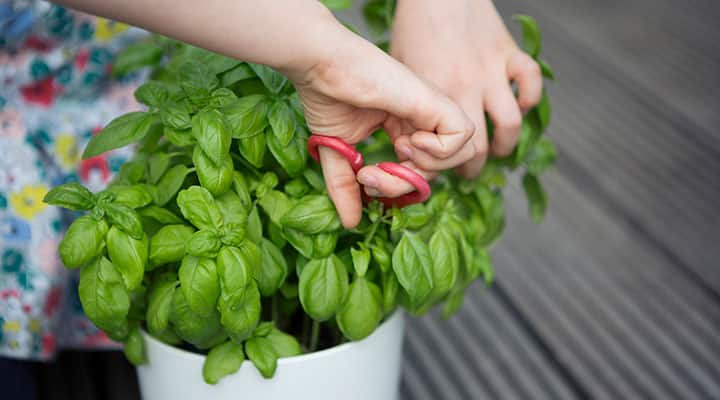
Pesto lovers, rejoice! Basil may be helpful with inflammation generated by fat cells. This is a popular herb in Italian cuisine.
3. Sage
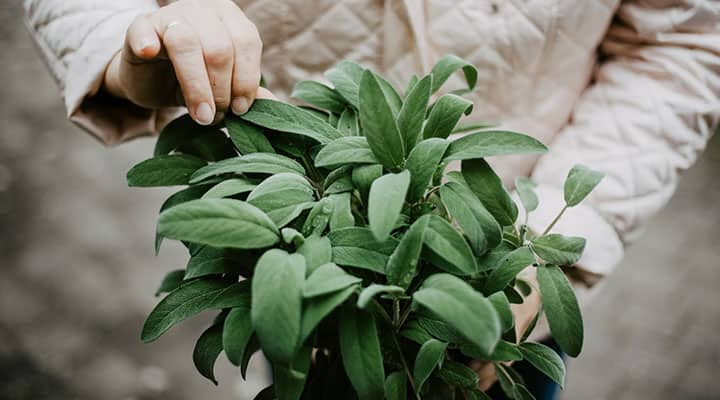
A word to the wise: the ursolic acid found in sage has been shown to help with inflammation, among other benefits – including brain health! Enjoy it with butternut squash.
4. Sesame
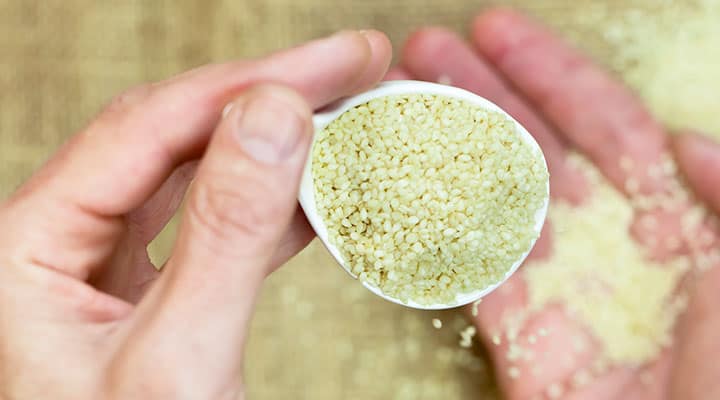
Sesame has been shown to have anti-inflammatory properties in preclinical and clinical studies. It goes great with Asian and Middle Eastern cuisines.
5. Turmeric
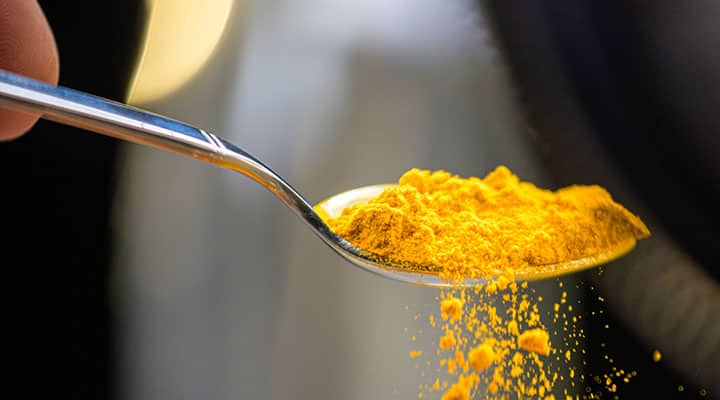
Turmeric, and its main bioactive constituent, curcumin, is a very popular anti-inflammatory spice with many studies demonstrating efficacy. Clinical and preclinical studies indicate that turmeric and curcuminoids like curcumin may help manage symptoms of inflammatory bowel disease, cardiovascular disease, autoimmune disease and more. This spice is used widely in Indian dishes.
6. Ginger
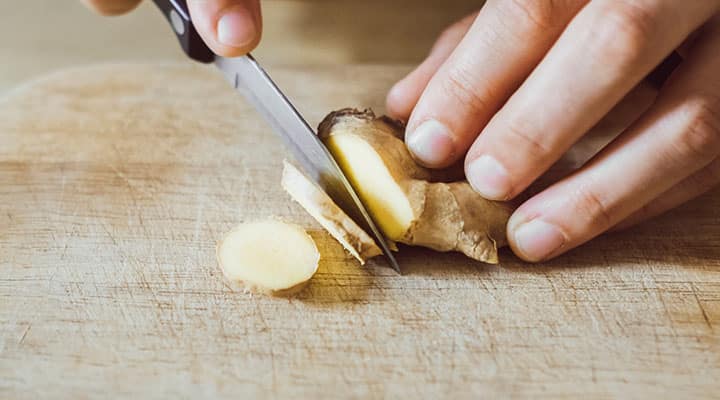
Ginger has been shown to reduce C-reactive protein (CRP) and inflammatory cytokines in participants with diabetes and osteoarthritis. Whip up a healthy stir-fry with lots of veggies and ginger!
7. Saffron
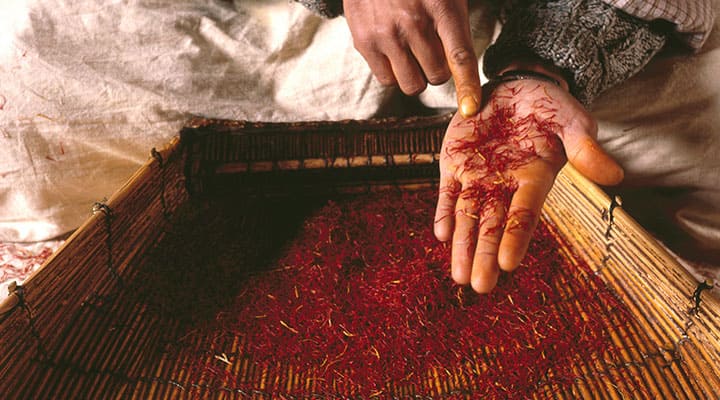
Saffron has demonstrated anti-inflammatory effects in several clinical and preclinical studies. In participants with metabolic syndrome, saffron intake reduced CRP levels and decreased serum concentration of pro-inflammatory cytokines. This spice can be pricy, but it is also available in a more affordable capsule form.
8. Garlic
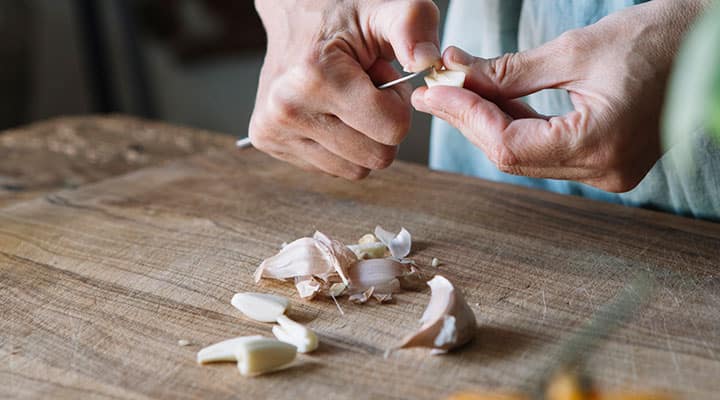
Yet another reason to LOVE garlic – it has been shown to promote anti-inflammatory activity in clinical studies. In a study of overweight and obese women with osteoarthritis, garlic reduced pain severity and production of the pro-inflammatory adipocytokine (a cytokine produced by fat cells) called resistin, which has been correlated with insulin resistance.
9. Caraway
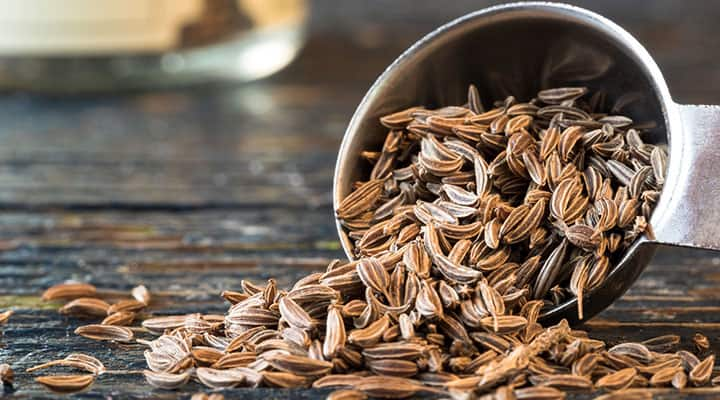
Caraway seeds are used in a variety of ways. They can be paired with pork or cabbage – but also used in British seed cake! Some data suggests that it may be beneficial in inflammatory bowel conditions like colitis.
10. Cardamom
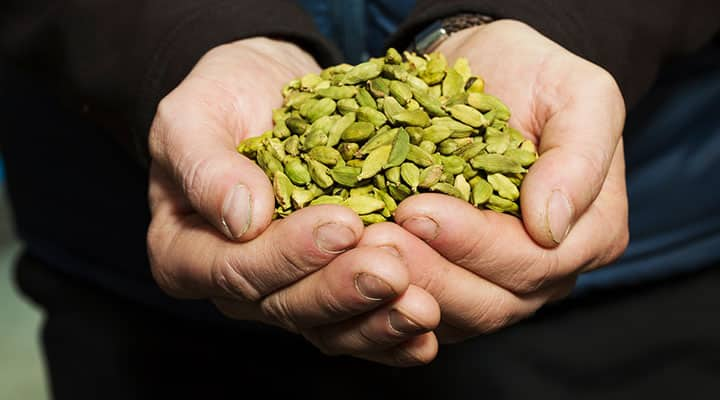
This warming spice, often found in Indian desserts, has several clinical and preclinical studies demonstrating anti-inflammatory effects. Cardamom may reduce levels of CRP and inflammatory cytokines. It is thought to exert its anti-inflammatory effects through inhibition of the NF-κB pathway.
11. Nutmeg
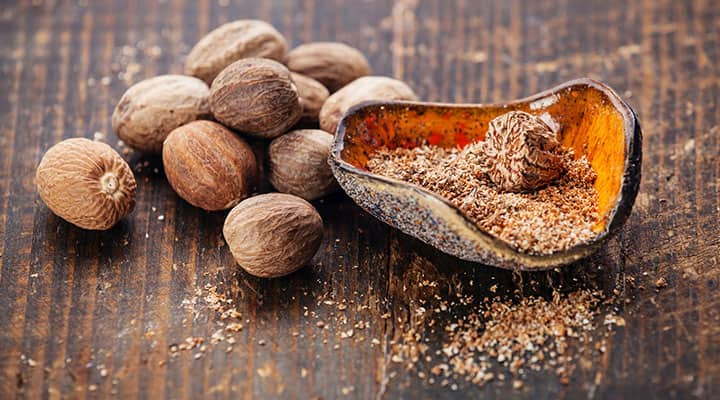
Nutmeg has some preclinical data indicating it may have potential as a pain reliever due to its inhibition of COX enzymes, a mechanism similar to some non-steroidal anti-inflammatory drugs. Did you know it is a secret ingredient in some of your favorite Italian pasta dishes?
12. Paprika
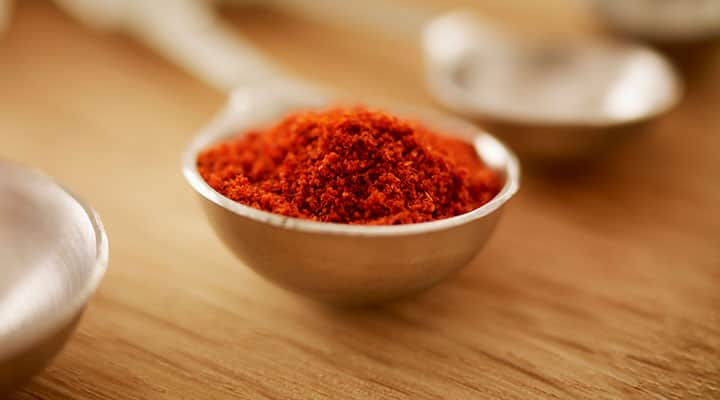
Interestingly, one study showed that paprika prevented an inflammatory response from UV damage to skin. Paprika also reduced the abdominal fat area and BMI in healthy overweight volunteers without adverse effects. Add some color to chicken, shrimp and cauliflower with paprika!
13. Cayenne pepper
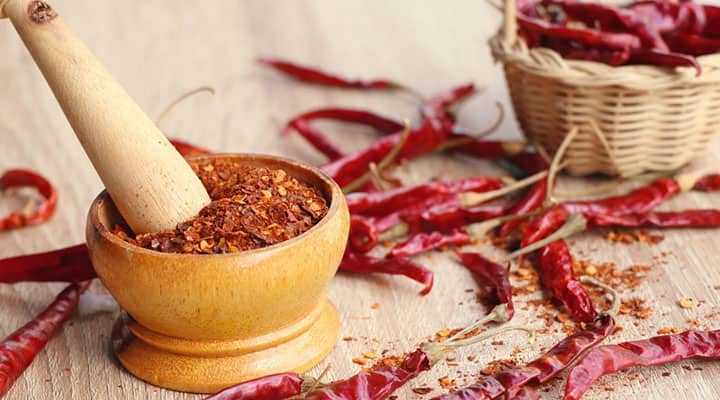
Are you a spicy food lover? Capsaicin is an active compound found in hot peppers. When used topically in the right amounts, it can help with inflammation and relieve pain.
14. Cinnamon

Studies suggest that cinnamon may help with age-related inflammation. Add some to fresh apples or stir it in your oatmeal.
References
- Basith, Shaherin, et al. "Harnessing the therapeutic potential of capsaicin and its analogues in pain and other diseases." Molecules, August 2016, https://www.ncbi.nlm.nih.gov/labs/pmc/articles/PMC6272969/
- Furman, Daved, et al. "Chronic inflammation in the etiology of disease across the life span." Nature medicine, December 2019, https://www.nature.com/articles/s41591-019-0675-0
- Ghasemian, Mona, et al. "Review of anti-inflammatory herbal medicines." Adv Pharmacol Sci, May 2010, https://www.ncbi.nlm.nih.gov/labs/pmc/articles/PMC4877453/
- Kunnumakkara, Ajaikumar B, et al. "Chronic diseases, inflammation, and spices: how are they linked?" J Transl Med, January2018, https://www.ncbi.nlm.nih.gov/labs/pmc/articles/PMC5785894/
- Mahboubi, Mohaddese. "Caraway as important medicinal plants in management of diseases." Nat Products Bioprospect, February 2019, https://www.ncbi.nlm.nih.gov/labs/pmc/articles/PMC6328425/
- Kakutani, Ryo, et al. "Effect of oral paprika xanthophyll intake on abdominal fat in healthy overweight humans: A randomized, double-blind, placebo-controlled study." J Oleo Sci, September2018, https://pubmed.ncbi.nlm.nih.gov/30111683/

